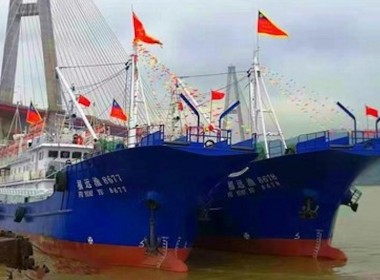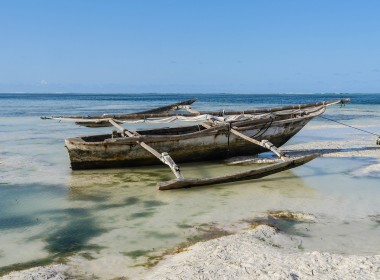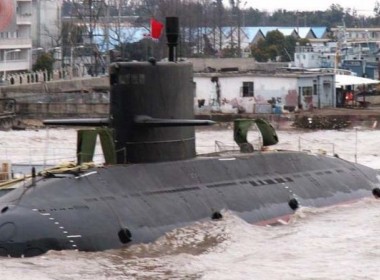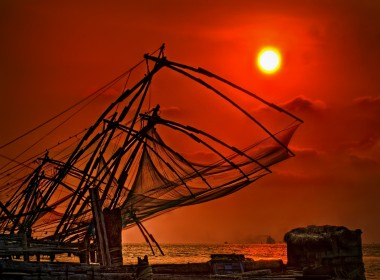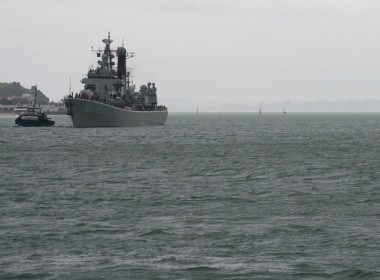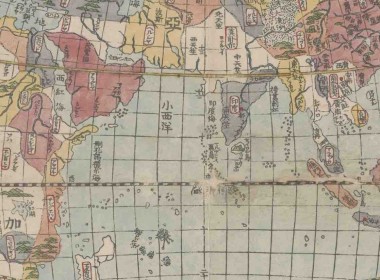EDITORIAL: Neglected Indian Ocean gets some overdue attention

Having recently driven from Fremantle to Sydney, I am well aware of just how wide our brown land is. I am also well aware that less than ten per cent of Australia’s population lives in its western half. And, like most people in the eastern half, I was taught that James Cook discovered Australia. Eastern Australians are lamentably ignorant of the West and its enormous importance to all of us. Our ignorance of the Indian Ocean, what you fly over on the way to Dubai, is even more profound.
So, apart from the pure pleasure and “buzz” that is gained from actually being in Western Australia, the State of Excitement, it is always good for your education to be re-apprised of a few historical facts. Some of them being: that numerous Dutch mariners set foot on Australia up to 160 years before Cook; and, that two other English mariners, John Brooke and William Dampier, preceded him by 148 and 83 years respectively. So much for an eastern Australian education! Thank you Manning Clark.
Western Australia’s maritime success stories tend to be more celebrated beyond Australia than in the eastern states. Its naval architects, ship builders, fishermen, pearl farmers and oil, mineral and gas explorers and developers are generally better known and respected in Europe, the Middle East, Tokyo, Oslo, Rotterdam and Houston than in Sydney and Melbourne. Western Australia is generally regarded as that handy place whose citizens disproportionately support the mendicant southern and eastern states of South Australia, Tasmania and Queensland with their Goods and Services taxes.
“Our marine research has tended to be focused on the east and south coasts”
Thus it was that, on that trip, I was delighted to be able to visit and look over the magnificent new headquarters of The UWA Oceans Institute at the University of Western Australia’s main campus in Perth. This purpose designed and built AU$65 million building is already contributing significantly to the collation and dissemination of knowledge about the too long ignored Indian Ocean.
Oceans Institute general manager, Tracy Parker, who I had met at the World Ocean Council’s Sustainable Ocean Summit in Singapore in 2015, showed me around. I was impressed with the Institute’s facilities, its building and the typically West Australian “can do” attitudes demonstrated by its staff and graduate students.
Possibly because Captain Cook charted much of it, most of Australia’s marine research institutions are scattered along the east coast from Hobart to Townsville. Hence, our marine research has tended to be focused on the east and south coasts and the Pacific Ocean and Tasman and Coral seas. Until comparatively recently the vast and rich waters off Western Australia have been little noticed by the scientific establishment. Most investigations there have been commercial. Not that that is necessarily a bad thing.
Now, working constructively with, but not dominated by, industry, the Oceans Institute is making significant strides in improving our knowledge of the vitally important Indian Ocean. That work is important not only to Western Australia but to the whole of our country.
Certainly no ivory tower
The institute’s work covers a mixture of pure and commercial research. It covers every imaginable part of the whole Indian Ocean marine ecosystem. Research ranges from the seabed to the atmosphere above the ocean. It holistically incorporates, geology, geophysics, biology, ecology, engineering, geotechnics, health, sociology, ornithology, oceanography, meteorology, hydrodynamics, chemistry, physics, resource management, governance, economics and much more. This is all conducted in a collegial environment that encourages cross-fertilisation of ideas across all disciplines.
The institute collaborates with other academic and government research organisations such as AIMS, the CSIRO and the WA Department of Fisheries as well as those in other countries around the Indian Ocean rim. It has a major marine facility on the coast at Watermans Bay and is building a new Ningaloo Centre at Exmouth.
Talking with a number of the institute’s researchers, I was impressed with their enthusiasm and their energetic approach. They may work in a magnificent and very well equipped building but it is certainly no ivory tower. It is already contributing and will continue to contribute to Australia’s knowledge of the seas around us. It provides a very encouraging example of a university working constructively with the wider world and industry for the greater good.
While the building appeared much less than half full during my visit, this is obviously well-planned to facilitate considerable future expansion. It is certain to be needed. The Indian Ocean is vast and there is much to be done. As the former chief scientist of Western Australia put it, “The Oceans Institute is set to play a key role in understanding our precious marine environment. Such knowledge will help protect the future of Western Australia and beyond, environmentally, economically and socially.”
We will, I am sure, hear a lot more about the UWA Oceans Institute before long.


